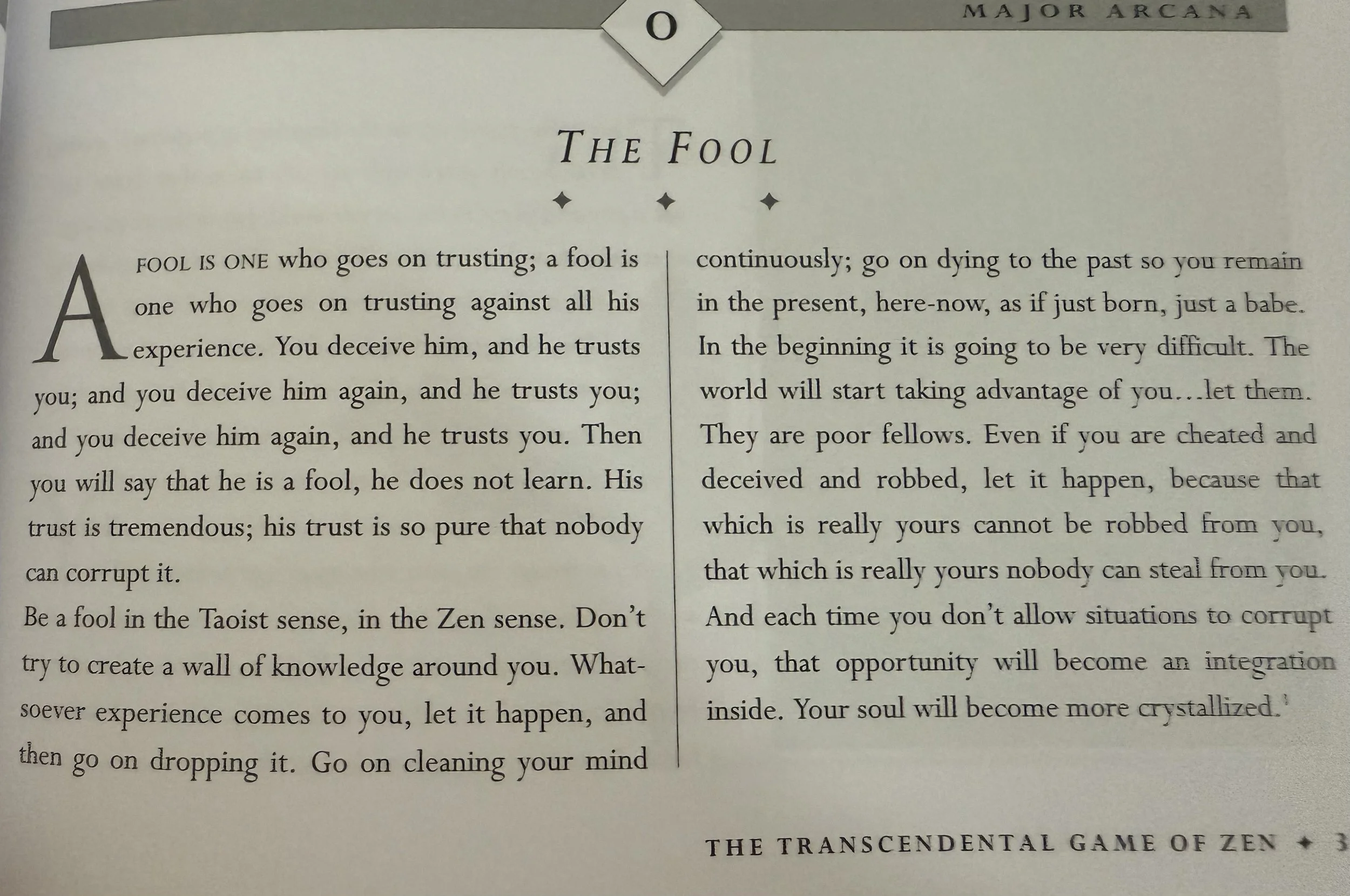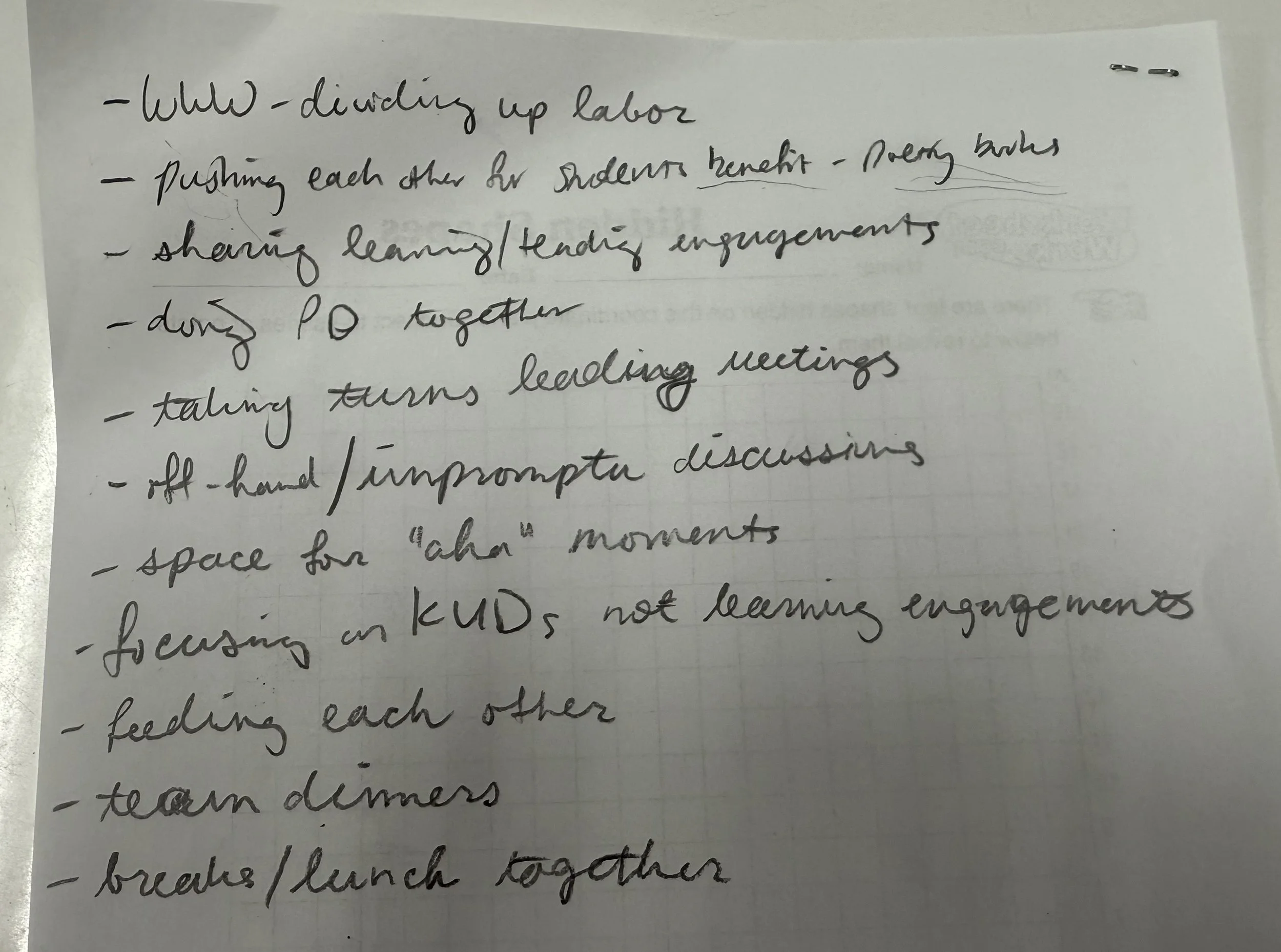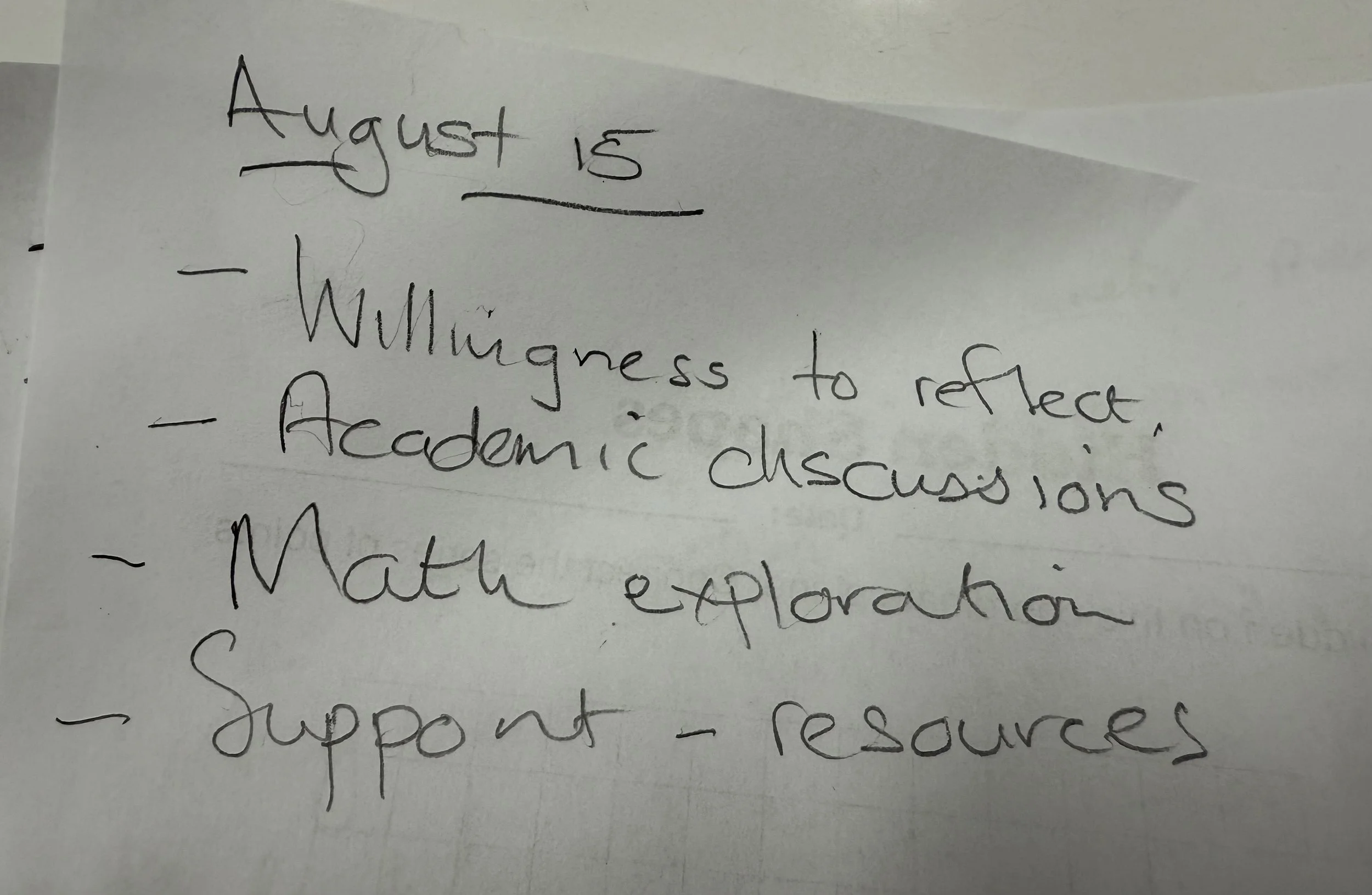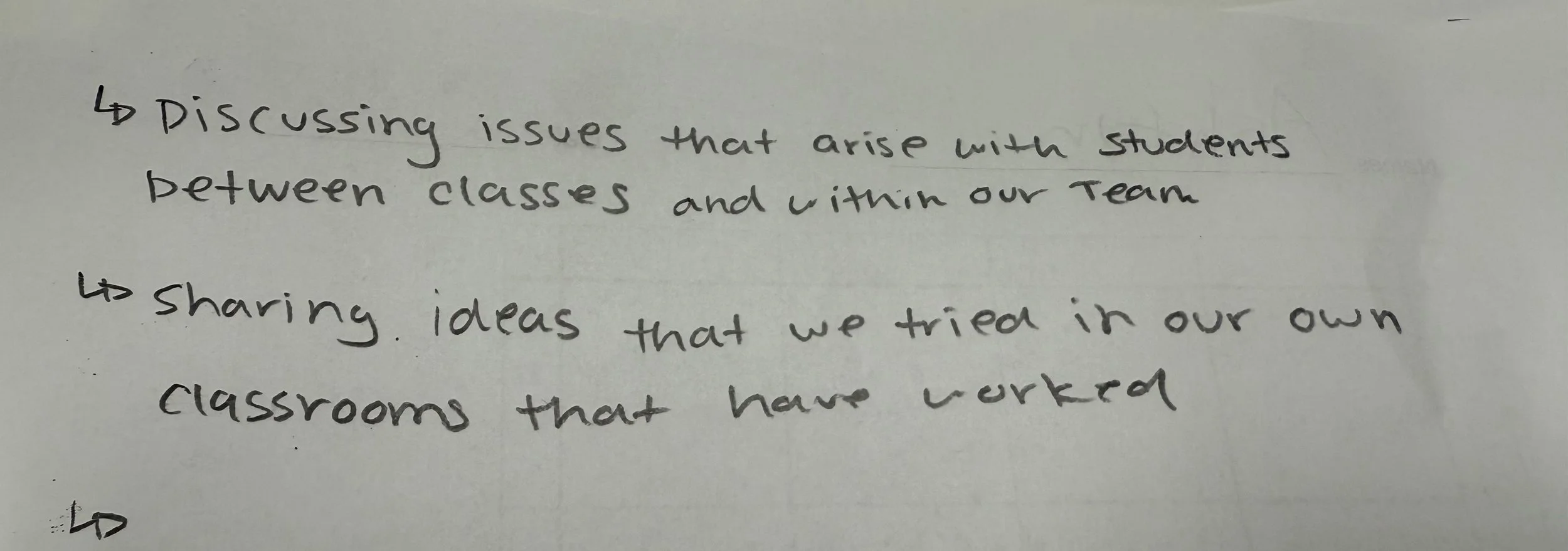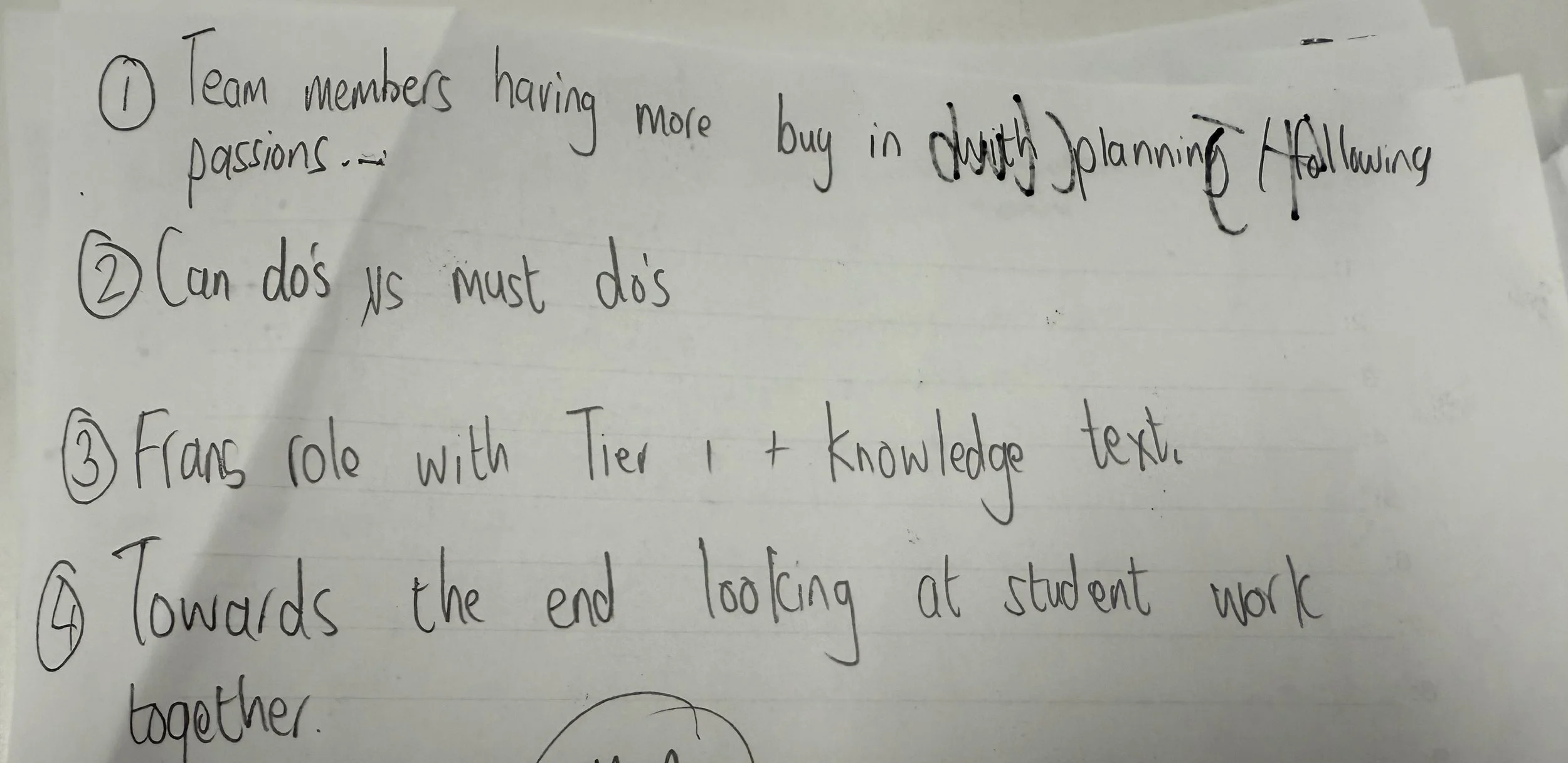Reflective Teachers Make Reflective Learners
As the team lead for grade 4, I work closely with admin and other team leaders. Our first official meeting of the 2025-2026 school year our principal stressed the importance of creating and adhering to team norms. Based on reading he did this summer, he realized just how important team norms are. I have always gone through the motions of making norms and gently referring back to them, but never took them very seriously as I valued my relationships with my team members more than following these cold, static norms. This is something I want to change this year as really norms are conducive to inclusive and safe spaces for everyone to feel valued. This actually helps relationships become stronger. “Expected and unexpected behaviors” floats through my head as something I talk about with students. Why would this not work with adults as well?
This past summer I had the chance to visit a friend from Mexico who was visiting Mexico. I was already going back to the US for most of the summer, so it was a perfect opportunity to meet up with him. We spend almost two weeks together in Oaxaca and in Puerto Escondido, a beach town south of Oaxaca on the Pacific coast. It was lovely! While we were on the beach he introduced me to Osho Zen Tarot cards that we played with lazing on beach chairs and contemplating life. I had to buy a pack when I came back home.
My first reading
The fool is actually a great card after reading about it!
I thought it would be a good way for us to bond as a team coming back for the new school year. The cool thing about this deck is that it’s more philosophical than occult. The cards represent teachings from different spiritualities and philosophies (focused heavily on Buddhism and zen). There’s nothing about death cards or other occult-ish images—they’re a bit more friendly to diverse audiences who might be a bit skittish about tarot readings.
As a team, we took turns pulling a card from a random spot in the deck (whatever called to us). The cards come with a little booklet that explain their art and its interpretation as well as a spiritual or philosophical commentary. You can see the example of the fool as well as the cards we drew below:
The first card we pulled was inner voices. This card is about following your internal guidance and not get distracted by other voices. It’s about the importance of trusting your intuition and finding inner awareness to grow clarity or seek truth. It’s a reflection to remember to think about answers that come from within, not from outside influences. My coworker was excited as this was something she was telling herself to do more of: follow your heart. This started a great discussion about not letting the usual bombardment of information and initiatives get us flustered or confused. In our hearts we know we are following the school’s vision, mission, and values. We should listen to ourselves more while still, of course, getting input and feedback from others.
The other cards were about letting go of too much control, something we discussed about doing more inquiry with students and letting them guide their own learning more. The thunderbolt is about the usual shake-ups that come with education and how we need to be sturdy and flexible. The mind card is similar to inner voices: don’t get stuck in negativity or unhelpful mind loops. Another theme that came up was even about our relationships with each other and being more open and understanding to each others’ needs and situations.
Overall, it was a cool process to go through with my team! I like the subjectivity of the cards as well as the objectivity of pulling a card. The philosophies are open-ended and can apply to anything and the random draw provides an almost third-party discussion leader. It took away some of the awkwardness that comes with the whole “I thought it would be good to talk about….”
We continued our reflective skills into our norm-building process by following a few questions (inquiries) I laid out for the team.
We started with a brainstorm of the first prompt:
Write down some ideas about moments that the team meetings and collaboration worked well. Below are some of our memories (excuse my chicken scratch handwriting):
I chose this prompt because it relies on our own lived experiences and personal testimonies/anecdotes. Rooting ourselves in specific examples I find is way more helpful than “I think we do a good job of communicating” versus “We did a great job dividing up the labor for the students’ poetry books and you helped push us to do it for our students although it was a lot of work.” There’s a lot more to unpack in that second reflection!
After shared our memories and reflections we moved on to the next prompt:
2. What are the common themes? What do we notice that we share?
This was a good reflection on what stood out as successes for our team, as more than one person shared it. Finding salient themes is always good—it encapsulates a lot in a little, something my organizing-prone brain loves.
The next prompt: 3. What’s different?
This was fun to think about what stood out to other people and what maybe I didn’t even think about or consider to be a success, but to them it was. This helped me realize that any action can have a consequence and can be remembered months later in a relfection meeting. It really is a collection of small moments.
The fourth prompt: What is missing? What else is important to consider?
I struggled initially with posing these questions because, obviously, if it was important it would’ve already been there! But I think taking that time to stop, pause, and go deeper is helpful. It can be a designed time to allow for others to access a break in the flow of conversation to chime in “well, actually….” These were some things that came up”
Respecting decisions and finding common ground
Don't take disagreements as a personal attack, sometimes things are done according to school’s mission
Remembering to use our time wisely as a team, especially when it comes to planning
Very important stuff we didn’t think about, but we have worked through in the past together as a team.
The last prompt before our norms: What didn’t go well? What goals can we make?
Keep planning for planning, bringing each other back to what needs to be done when we go off topic
Step out of yourself but remembering to focus on yourself
Remembering others’ needs and situations – remember relationship first; humanity trumps!
We had a great discussion about the need to build relationships, but still focus on the planning time as planning time to get through what we need to. We do a great job of remembering others’ needs and situations, but we agreed that is an on-going goal to strive for. Humanity and relations first. My coworker said the second one and we all paused to reflect. It actually aligns with the “inner voices” card, funny enough. It is also all about being a reflective colleague: stepping out of myself to see myself and my actions, while also remembering to focus on myself and my needs. Deep!
So, after a few great discussions we agreed on the following norms:
1. Planning time is for planning
2. Being prepared with documents, materials, calendar, etc.
3. Communicating needs, expectations in a open and kind way
4. Keeping each other and ourselves accountable
5. Assuming positive intent
Funny enough, we probably would’ve come up with this list at the beginning of the meeting and called it good, but now they are rooted in anecdotes, stories, feelings, memories—really much more emotional tethering that can help drive our team and our goals forward.
All in all, for my first blog post I felt it was proper to start with the team and adults fresh off for a new school year. As this blog will approach the theme of steps as in bit by bit, it can get lengthy, drawn out, wordy, but I want to get more out so there’s more to dissect. Each little bit to be nitpicked and pondered.
I think starting with the tarot cards opened up the conversation in a fun, mystical way that relies on what Kath Murdoch might call some “zest,” something fresh and new to spice up our normal meetings.
Leading with questions and prompts that are open-ended always helps guide discussions. Were my questions good? Meh. Did they flow naturally? Maybe, maybe not. But what was important was that I did something and reflected! I think that’s what we strive for our students to do: try it and see! We can fix it, change it, do it again! As we discussed our norms, we all agreed that these would be discussions we would have moving forward to reflect on and adapt, change, fix, redo.
The tarot cards will make a return!


